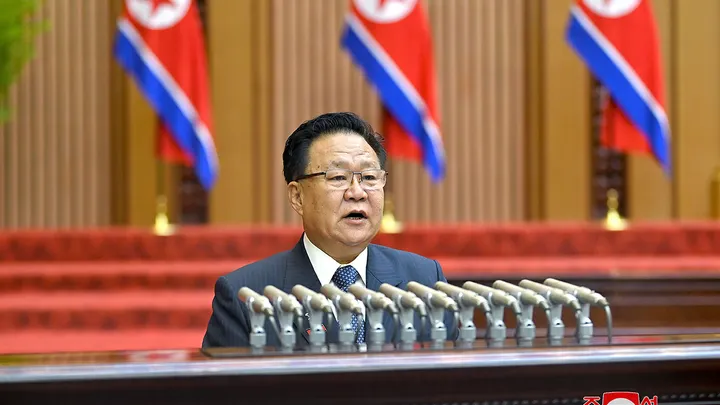North Korea has taken a significant step by announcing its decision to permanently block its border with South Korea and fortify front-line defenses. The move comes amid rising tensions and mutual accusations of provocations between North Korea, South Korea, and the United States. While many view this as a pressure tactic, its implications on inter-Korean relations remain uncertain, as cross-border interactions have been suspended for years.
Border Closure and Strengthening Defenses
North Korea’s official Korean Central News Agency (KCNA) reported that the country would “completely cut off roads and railways” connecting to South Korea and “fortify the relevant areas of our side with strong defense structures.” These actions were described as a “self-defensive measure for inhibiting war and defending the security” of North Korea, driven by what Pyongyang called the “confrontational hysteria” of South Korean and U.S. forces. Since April, North Korea has already reinforced roads and installed anti-tank barriers, aiming to prevent defections and strengthen its security posture along the border.
South Korea’s Response: No Tolerance for Provocations
In response, South Korea’s military made its stance clear, declaring that any attempt by North Korea to alter the status quo would be met with a firm response. “South Korea will overwhelmingly punish North Korea if it launches provocations,” a military statement emphasized. South Korean officials also noted North Korea’s recent activities, including the removal of ties on the northern side of cross-border railways and the planting of mines along the border.
A Delayed Constitutional Revision?
Observers had anticipated that North Korea might use its Supreme People’s Assembly meeting to announce a constitutional revision formally designating South Korea as its “principal enemy” and redrawing national borders. However, KCNA’s reports from the meeting focused instead on adjusting legal ages for work and elections, leaving questions about the expected constitutional changes. Some experts believe North Korea may have delayed the announcement, while others speculate that the amendments were made quietly due to their sensitivity.
Strategic Shifts and Regional Impact
Kim Jong Un’s move to reshape the North’s stance on unification has caught the attention of many analysts. Kim’s approach diverges from his predecessors’ aspirations for a unified Korea under North Korean terms, signaling a shift in strategy. Analysts suggest that Kim’s goal is to undermine South Korea’s role in regional discussions over nuclear issues while seeking more direct engagement with the United States. “Kim likely aims to diminish South Korea’s voice in the regional nuclear standoff,” according to experts. This shift may also reflect efforts to curb South Korean cultural influences and solidify Kim’s domestic power.
Rising Tensions Amid Military Tests and Drills
The announcement from North Korea comes when tensions on the Korean Peninsula have reached new heights. The North’s recent weapons tests and the expansion of joint military drills by South Korea and the United States have intensified the situation. On Tuesday, KCNA reported a long-range artillery test by North Korea, which observers see as a direct threat to Seoul, situated just an hour’s drive from the border.
An Uncertain Path Forward for Inter-Korean Relations
North Korea’s decision to close its border and ramp up defenses adds another layer of complexity to the already strained relationship with South Korea. As both nations maintain their respective positions, the potential for diplomatic engagement appears increasingly remote. Yet, in the unpredictable world of regional geopolitics, the actions of one side can quickly shift the dynamics of the Korean Peninsula. The world watches closely, hoping that further escalation can be avoided.







